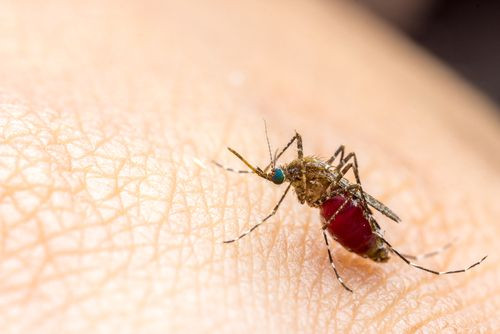Sanofi's Dengue Fever Vaccine Shows Promise With 56% Reduction In Children Affected

Sanofi released a statement Monday saying that the pharmaceutical company succeeded in its first late-stage trial of a new dengue vaccine. In the trial, the new vaccine reduced the occurrence of dengue fever by 56 percent in 10,275 children. This is a promising result, since 2.5 billion people are at risk for dengue worldwide, according to the World Health Organization.
“This result is the achievement of more than 20 years of work in the field of dengue, collaborating with investigators, volunteers, authorities, scientific experts and international organizations,” Olivier Charmeil, Sanofi president and CEO, said in a statement Monday. "Developing a dengue vaccine for the benefit of children and their parents is at the heart of our mission. Our goal is to make dengue the next vaccine-preventable disease and to support the WHO’s ambition to reduce dengue mortality by 50% and morbidity by 25% by 2020."
Dengue is underreported because it is often misdiagnosed due to a large spectrum of clinical symptoms, from mild, non-specific illness to life-threatening complications. The limitations of surveillance systems also affect diagnosis.
The study was conducted on children between the ages of 2 and 14 in Indonesia, Malaysia, the Philippines, Thailand, and Vietnam, between 2011 and 2013. The participants were either given three injections of the vaccine or a placebo.
"This is the first time ever a dengue vaccine successfully completed a Phase III efficacy study,” said Dr. Maria Rosario Capeding, principal investigator, Research Institute for Tropical Medicine, the Philippines. "These significant clinical results, associated with the good safety profile of the vaccine, bring real hope to more than 100 million people affected each year by dengue, a disease without any specific treatment today."
As of now, there are no specific medications for treatment of dengue. According to the Centers for Disease Control and Prevention, people who think they have dengue should use analgesics containing acetaminophen and should avoid those containing ibuprofen, Naproxen, aspirin, or aspirin-containing drugs. They should also drink plenty of fluids. In extreme cases, hospitalization for the fever required.
Symptoms of the virus include: headache, high fever, and muscle and joint pain. The potentially lethal disease is not transmitted from person-to-person but by a mosquito.
Published by Medicaldaily.com



























